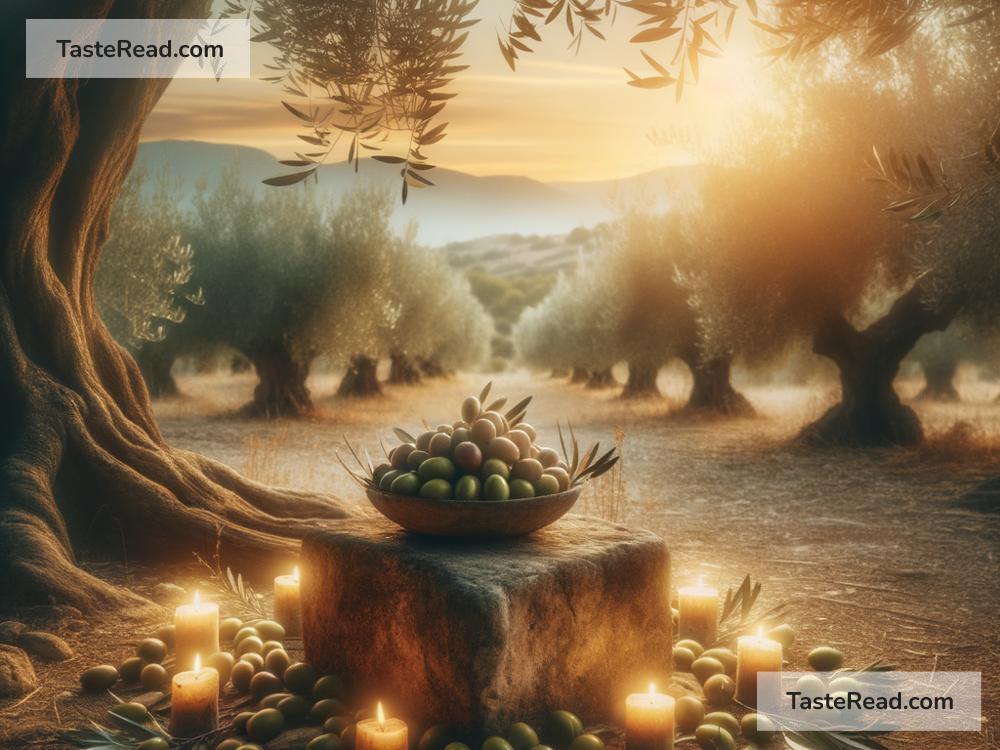How Olives Became Sacred in Rituals: A Story of Faith, Culture, and Symbolism
Olives are one of the most ancient and versatile fruits known to humanity. Besides being used to make delicious olive oil and serving as a staple in Mediterranean cuisine, olives have long been associated with sacred rituals, spirituality, and symbolism in different cultures. From ancient Greece to religious ceremonies in the Middle East, olives have carried deep meaning that has shaped how we see them today. But how did olives become sacred in rituals? Let’s dive into their fascinating history.
The Birthplace of Olives
The history of olives begins thousands of years ago in the Mediterranean region. Some researchers believe that olives were first cultivated in ancient Mesopotamia, around 6,000 years ago. Over time, this hardy fruit spread to nearby civilizations in Egypt, Greece, and Rome. The olive tree thrives in rocky soil and dry climates, making it a perfect match for the Mediterranean landscape.
Olives quickly became a valuable resource. They provided food, oil for cooking, fuel for lamps, and even medicine. Over the years, this humble fruit came to represent life, sustenance, and prosperity, attributes that would later make olives sacred in various rituals and traditions.
Ancient Greece: The Olive Tree of Peace and Wisdom
In ancient Greek mythology, olives were considered a divine gift. The story goes that Athena, the goddess of wisdom, competed with Poseidon, the god of the sea, to win the favor of the people of Athens. Each god had to offer a gift to signal their goodwill. Poseidon created a saltwater spring by striking his trident into the ground, but Athena planted the first olive tree. The Athenians chose Athena’s gift because the olive tree provided food, oil, and wood, which symbolized abundance and peace. As a result, the olive became sacred to the goddess and the city of Athens.
Greek rituals often incorporated olives or olive oil. At the sacred Olympic Games, winners were crowned with olive wreaths, and statues of Zeus were anointed with olive oil as an offering. Olive oil was also burned in lamps during temple ceremonies, symbolizing purity and enlightenment.
Biblical References: Olives as a Sign of Hope and Purity
Olives hold a special place in Judeo-Christian traditions as well. In the Bible, olive trees are mentioned many times, often symbolizing peace and divine presence. One of the most famous stories involving olives is Noah’s Ark. After the great flood, Noah sent out a dove to find dry land. The bird returned with an olive branch, signifying that the waters were receding and peace had been restored. Today, the olive branch remains a universal symbol of peace.
Olive oil also plays a sacred role in Christian rituals. It is used in anointing ceremonies, such as baptism and the blessing of kings and priests. In these practices, olive oil symbolizes the presence of the Holy Spirit, purity, and divine favor. This tradition has its roots in ancient Israel, where people used olive oil to consecrate objects and people before religious ceremonies.
The Olive in Islam: A Tree of Light and Blessings
Olives are mentioned in the Quran as a blessed fruit. In one famous verse, the olive tree is described as “neither of the East nor of the West,” symbolizing its universal importance. Olive oil is referred to as a source of light, both literally and metaphorically, reflecting wisdom and guidance.
In Islamic rituals, olive oil is often used for healing and spiritual purification. Because it is considered pure and beneficial, many Muslims use it in their everyday lives, whether for cooking, skincare, or religious practices. The olive tree also represents longevity, resilience, and divine blessings, qualities that resonate deeply in Islamic culture.
Rituals Around the World
Olives and olive oil have been part of rituals beyond the Mediterranean as well. In ancient Egypt, olive oil was used in mummification practices to preserve the bodies of pharaohs. It was believed to have protective and purifying properties that helped the soul transition into the afterlife. People in the Roman Empire used olive oil for religious offerings and poured it over statues of their gods as an act of devotion.
In modern times, olives and olive oil continue to play a role in sacred rituals and cultural practices. From lighting lamps in temples to anointing leaders, the olive has maintained its symbolic status across regions and religions.
Why Are Olives Sacred?
The sacredness of olives comes from a mix of practical uses, cultural importance, and spiritual symbolism. Olives have provided food, fuel, and medicine for centuries, making them a critical resource for survival. The tree’s resilience and longevity inspired ancient people to associate it with divine qualities like strength, peace, and purity.
Over the centuries, olives became a part of rituals and stories that shaped cultural and religious traditions. Whether it was Athena’s olive tree in Greece, the olive branch of Noah’s Ark, or the blessed olive mentioned in the Quran, this fruit has always been a symbol of hope, wisdom, and connection to the divine.
Conclusion
Olives are more than just a delicious fruit; they are steeped in history, culture, and spirituality. Their journey from a simple crop to a sacred symbol spans thousands of years and countless civilizations. Whether they appear in ancient myths, biblical stories, or modern-day rituals, olives remind us of the deep connections between nature, humanity, and the divine. So the next time you drizzle olive oil on your salad or admire a sunlit olive grove, take a moment to appreciate the rich history and sacred symbolism behind this extraordinary fruit.


